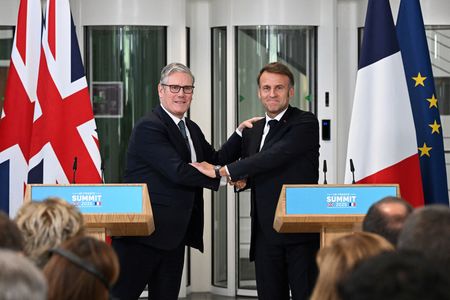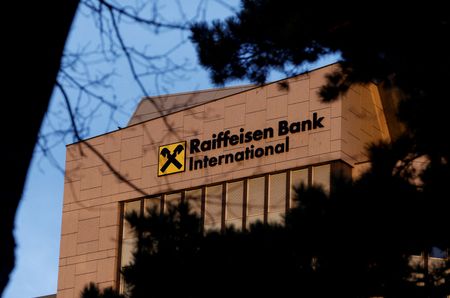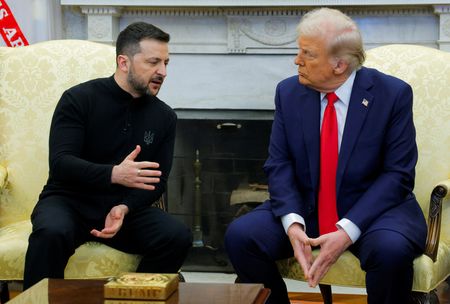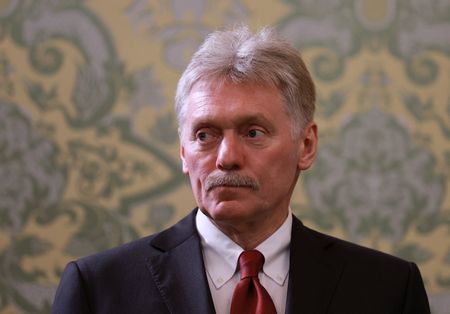By Alistair Smout
LONDON (Reuters) -Britain said it will start work within days to implement a deal to return some migrants who arrive on small boats to France, a key part of its plans to cut illegal migration, after a treaty on the arrangement was ratified on Tuesday.
Under the new “one in, one out” pilot scheme agreed in principle last month, France will accept the return of undocumented people arriving in Britain by small boats, in exchange for Britain agreeing to accept an equal number of legitimate asylum seekers with British family connections.
More than 25,000 people have come to Britain on small boats so far in 2025, and Prime Minister Keir Starmer has pledged to “smash the gangs” of people smugglers to try to reduce the number of arrivals.
Starmer, whose popularity has fallen since winning an election landslide last year, is facing pressure to stop small boats from Nigel Farage’s Reform UK party, which leads national opinion polls.
In recent weeks in England, there have been protests near hotels housing asylum seekers who have arrived on small boats, attended by both anti-immigration groups and supporters of immigration.
French Interior Minister Bruno Retailleau said on X that the deal has a “clear objective” to break up the people-smuggling networks.
His British counterpart, Yvette Cooper, would not say how many people would be returned under the scheme.
“The numbers will start lower and then build up,” she told Sky News on Tuesday, adding that the scheme would return new arrivals, rather than people already in Britain.
The treaty text said there would be a target timeframe of no more than three months from someone’s arrival in Britain to transfer to France, and Britain’s interior ministry said it expected detentions to begin within days.
Britain must make the request to return an individual within 14 days of their arrival, and France does not have to accept unaccompanied minors or people who pose a pre-existing security threat, the treaty said.
Government sources previously said the agreement would involve about 50 returns a week, or 2,600 a year, a fraction of the more than 35,000 arrivals reported last year.
Critics of the scheme have said its small scale will not act as a deterrent, but Cooper said the agreement was just one part of a wider plan.
The government has also used sanctions, measures against social media adverts and coordination with delivery firms to tackle people smuggling.
(Reporting by Alistair Smout; Additional reporting by Sarah Young and Sudip Kar-Gupta;Editing by William James and Helen Popper)











